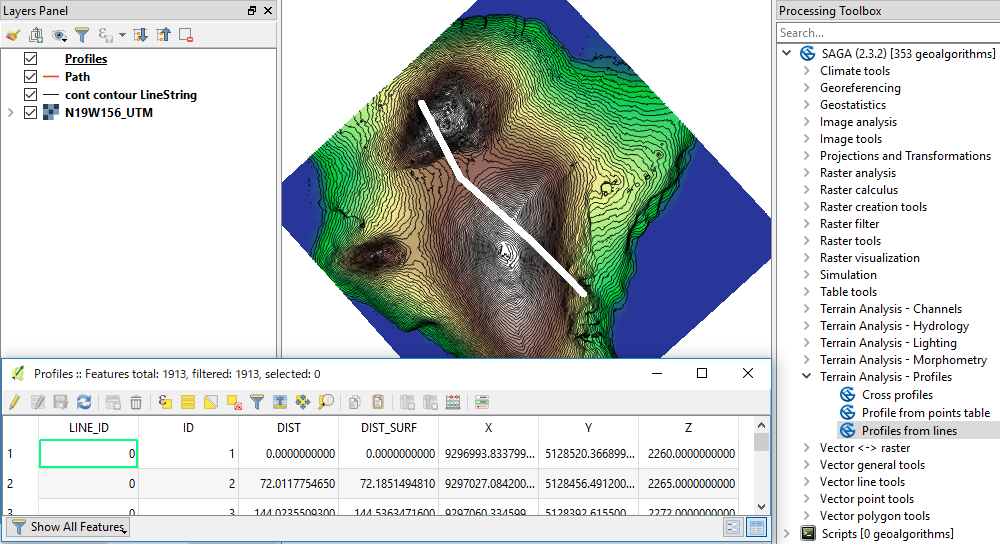I am looking to replicate a tool that is available in Geospatial Modelling Environment (GME) within QGIS, preferably not using GRASS. The tool is isectlinerst (Intersect Lines With Raster) http://www.spatialecology.com/gme/isectlinerst.htm
I am hoping to have a tool that can extract raster information (i.e. slope) for an entire linear network (i.e. roads). I have seen other post on here that show a rasterize process, but I am looking to maintain the vector input data and add the attributes to the data.

